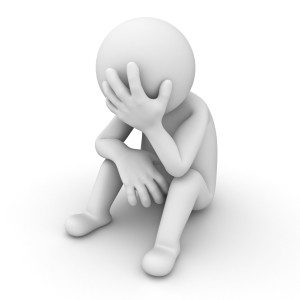Let’s face it we all get down from time to time. And to be honest this is a normal and functional way to be. Sometimes life simply sucks. To expect to be deliriously happy at these times would be a little…..well…..weird.
Sometimes though we stay down even when life gets better.
Now I’m not a huge fan of diagnosing depression unless it really is depression – you know the can’t get out of bed, or shower, or function type. But…the problem with our brain is that it likes stuff to stay the same. To be predictable. And to be consistent.
So staying low when our life is good makes our brain happy. Because it’s consistent and predictable. Our brain doesn’t really see the point of changing and being happy. And that can lead to depression.
Think what it’s like. You’re a bit down. Your default mode is to withdraw from friends and cocoon until you feel better. So you don’t go out. You stay at home – alone, eating chocolate. Life changes. You still stay at home – alone, eating chocolate. And now you’re lonely. But it feels comfortable for your brain to stay at home alone. So you don’t go out. And you get lonelier. And then feel like you have nothing to say because you haven’t seen anyone or done anything that feels worth talking about. So you’re even less inclined to go out, which makes your brain happier because you’re being consistent.
All of a sudden you turn around and realise you’re really down, with what feels like no friends, and you don’t have the motivation to do anything about it.
Not a good place to be.
So you can see it’s preferable to do something about the low mood before it gets out of hand.
If we don’t want the low mood to get out of hand then we absolutely must NOT retreat, go into our cave, and remove ourselves from the social world. If we’ve had a difficult childhood, this can feel like the safest, most comfortable place to go. We may have had messages or beliefs about being a burden on others or not airing our dirty laundry or about only being acceptable if we’re happy. These are faulty messages that should be ignored at all costs.
Social support is one of the best things we have to protect us against depression. And the need for attachment to others is one of the four basic human needs for wellbeing and psychological health (I’ll talk about the other basic needs next time).
So if you are having a low point in your life, get your butt out there even if you don’t feel like it. At least your brain won’t be making ‘at home – alone, eating chocolate’ your default mode for months (or years) to come.
I’ll keep going with this series over the next few blogs. And like I said, let me know if you’re interested in coming to the Depression: Beat the Blues 5 week program. I’ll have lots of great strategies for beating the blues that are easy to implement that come straight from Positive Psychology and Neuropsychology.

